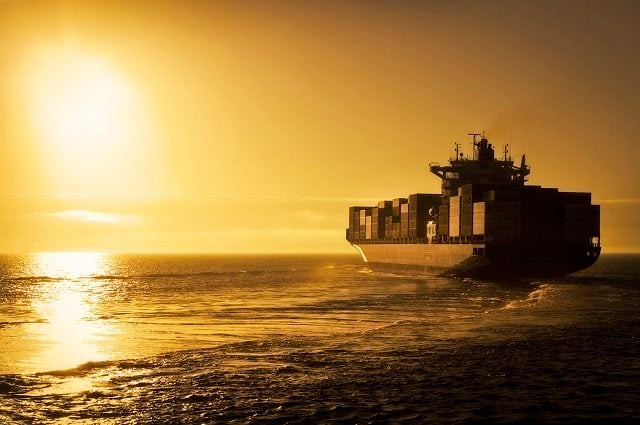Pakistan exporters hope to benefit from US-China tiff
Target gap in textile market as the US looks for alternatives

Representational image. PHOTO: REUTERS
The world’s largest trade exhibition of home and contract textile Heimtextil 2020 will be held from January 7-10 in Frankfurt. It is the first trade fair of the year for the textile sector and is perceived as a trend barometer.
This year, 231 companies of Pakistan will showcase their products in the exhibition. The Trade Development Authority of Pakistan (TDAP) has set up a traditional Pakistani pavilion for small and medium-sized export companies, where 56 Pakistani firms will display their products.
Exporters are in high spirits and are hoping to receive new orders as they are targeting the market space created by the trade conflict between the US and China. On the other hand, most companies are hoping to take advantage of the so far untapped tariff concessions under the GSP Plus programme for the EU market.
Messe Frankfurt Country Head for Pakistan, Bangladesh and Sri Lanka Umer Salahuddin said, “Pakistan is the fourth largest international exhibitor at Heimtextil. The number of Pakistani exhibitors has grown over the past few years, which has resulted in growth of Pakistan’s home textile exports.”
He added that most of the Pakistani companies were participating in this year’s exhibition with new products. “Pakistani companies have made great strides in keeping with the theme of the exhibition and emerging trends in their respective markets,” Umer remarked.
A Pakistani export firm, which regularly attends the exhibition, is hopeful that it will be able to attract new buyers to its hospitality and health care-related textile products.
According to Nadeem Kayani, Director of the JK Group of Companies, which has participated in the exhibition for 19 years, US buyers are looking for alternatives to Chinese products in the wake of the ongoing trade spat.
“US buyers have already begun to expand their links with Pakistan for its home textile products,” Kayani said, adding that the US, the UK, Spain, Italy and Portugal were the major markets for its products.
“We have high hopes that we can woo new US buyers in Heimtextil as there is a strong possibility of increased participation by American purchasers.”
Commenting on the hurdles, Kayani said the decline in the value of the rupee had led to an increase in the input cost of businesses. On the other hand, the rise in gas tariffs is also pushing up the cost of production.
“Export industries are also facing shortage of capital due to the withdrawal of zero-rated facility for the five major export-oriented industries.”
Meanwhile, opportunities are growing for Pakistan due to the changing global trade environment and benefits can be reaped by resolving the problems facing the industries.
Another Pakistani exhibitor, Lakhany Silk Mills CEO Hanif Lakhani, said, “European buyers prefer quality products at good prices. European buyers will, therefore, be the focus of our attention.”
He said “Pakistan has not yet made full use of the GSP Plus facility; many home textile tariff lines have not been used yet. Our company is participating with new products, especially kitchen wares, that can attract European buyers due to their better quality and we can also get benefit from the tariff concessions.
“We have been participating in the Heimtextil exhibition since 2001. This exhibition is a good platform to meet existing buyers and chase new customers.”
Lakhani said, “The depreciation of the rupee is beneficial for Pakistani exporters. Although input costs have increased, wages are at the same level, this is not the case with competing countries of Pakistan.
“Pakistan’s export firms can benefit from the depreciation of the rupee. The government has made it easy for the exporters to get sales tax refunds, which is a helpful step in increasing exports.”
Heimtextil plays an important role in promoting exports of home textile products from Pakistan.
This year marks the 50th edition of Heimtextil, which is the largest gathering of exporters, buyers, technology companies, researchers and designers from all over the world. Pakistan first participated in the trade fair in 1975.
Published in The Express Tribune, January 3rd, 2020.
Like Business on Facebook, follow @TribuneBiz on Twitter to stay informed and join in the conversation.


















COMMENTS
Comments are moderated and generally will be posted if they are on-topic and not abusive.
For more information, please see our Comments FAQ